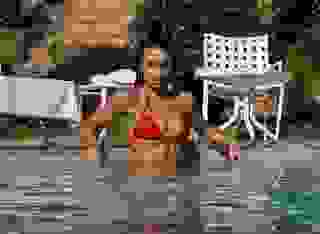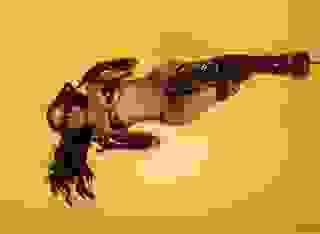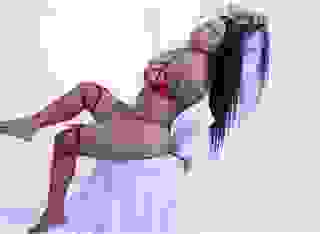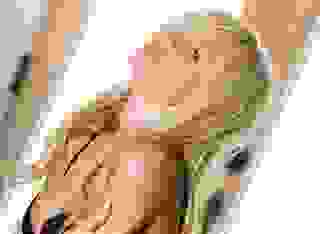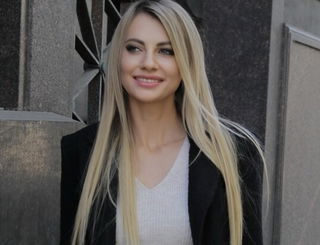Note: You can change font size, font face, and turn on dark mode by clicking the "A" icon tab in the Story Info Box.
You can temporarily switch back to a Classic Literotica® experience during our ongoing public Beta testing. Please consider leaving feedback on issues you experience or suggest improvements.
Click hereOne afternoon he talked of leaving his wife, of bringing Maria to America, and while he talked she saw the naked futility of his plan. She could never leave the Port of the Dolphins, and his first best destiny remained there by the little harbor, with her, as well. If only he could see this simple truth...
He would not hear of it, however. He could never leave America, his life there was his work. While Goodwin considered their past an un-reconciled debt, he never considered what he asked of her unfair because he could not see the vital connection of Maria Theresa to the sea, to the music of those frenzied unions. He simply could not believe that asking her to leave the village was so wrong; she would have her children, and him; they would be together, united to make a better life. Yet Maria never felt this true to the destiny she felt in her soul, and she grew bitter with what she considered his carelessness, his blindness. When they returned to Portofino she told him to leave her, to go live his life -- such as it was -- in America. She would move on, she told him, and he should do the same.
Utterly defeated and now alone, Goodwin left. He never returned. He saw his son move off to college, then medical school, and he resolved to stay by his broken wife's side.
Nine months after their trip to Venice, Antonio Thomasi Morretti -- little Toni -- came into the world, a few months after Dino Morretti returned to the forgiving arms of his wife.
+++++
If Paulo and Toni Morretti never knew their real father, Margherita most certainly did know hers. After his return a beaten man, before Toni came into the world, he was true to his word and never once raised a hand to Maria Theresa. He simply turned his insidious, tortured soul's demented attentions to his daughter.
He never lifted a hand to hurt her; he didn't need to. He knew which words cut the deepest -- and he used them frequently. Margherita learned to bleed in painless agony. When Maria Theresa made a new dress for her, she knew she could count on her father to belittle her appearance. When she brought home good reports from school, she knew he would undermine her confidence in other ways, tell her how stupid she really was, how meaningless education was for a girl. It was predictable, she knew what was coming, always, but she never knew why. She never understood why he hated her, and why, through it all, she continued to love him. It wasn't fair; one sided love never is, yet the pain is real enough.
And yet she understood there was something deeper amiss; she had faint memories of Paul Goodwin hidden in depths of earliest memory, a man who had helped her mother once, before her father, who stood by her for a time, and then all those days in recent years when he was around, always helping -- and his sudden attachment to Paulo.
She asked her father about this one morning. He surprised her, too; he didn't try to humiliate her, he didn't belittle her question.
No. The veneer shattered, walls fell. He broke down and cried until only salt fell from his eyes. And in her surprise she went to him, she held onto this man who was her father, and while she didn't understand why, she felt his pain. She felt vultures' wings of betrayal beating the air everywhere around her, their concussive ripples flowing through her own heart like dizzying waves of recrimination. But now, with her arms around her father, with his scratchy fisherman's beard resting on her face, she held him and when she told him that she loved him, the beaten man crumbled into salt-laden dust before her eyes.
In the weeks that followed, the little man was reborn. He finally found love in his own cold heart, yet that was the last place the man had expected to find it. He could not do enough for his daughter, no dress was too good for her, he took her everywhere -- fishing, and to the market to sell their catch; those were their favorite days -- and in time even little Paulo came to know some small measure of this love, though within the tortured limits of his 'father's' newfound ability. As such, time held the Morretti family in tender hands, for they were all fragile, wounded creatures. In this soft, wounded hold, time passed as a bloody carcass pulled along a rock-strewn road in a tired beast's mouth.
Toni, as he grew older, never went near the man; boundaries borne of instinct were as solid as any stone wall, and he remained by his mother's side whenever Dino Morretti came home. He watched his mother and he learned one simple truth: that man was not to be trusted. Before he was five years old he hated Dino Morretti, and his feelings never changed over the years. Not even after he learned of his pulling Margherita from the sea.
Once, when his voice had started to change, he asked his mother a simple question --"Is he my father?" -- and Toni never once forgot the look in her eyes. Warm, sympathetic, and yet full of sorrows he knew he would never understand: "Of course he isn't. How could he be?"
He looked at her in a new, very different way, after that one solitary moment in time. In one shattered instant he understood everything. He understood that she knew the true nature of Dino Morretti and had turned away from all his hate and fear. Turned away, he knew, to something he didn't know but could only faintly understand.
There were, he found, limits to what she would tell him. Her conspiracy remained intact, her denial absolute.
And yet, her words haunted him.
"How could he be?"
He always heard those words when he saw Dino, and the irony humbled him, filled him with cloudy incomprehensions. He, Toni, was not of that man; she was saying, in effect, that he was not of Dino's violence and ignorance, not of his blind shame and simpering rectitude. He, Toni, was Different. He was better than Dino Morretti; he always had been and would always be.
But -- who was he of? He came to define his life in terms of what was missing from his life, and so he grew up incomplete, searching, wondering who that missing part was.
And yet, he embraced the one vital piece of the puzzle: Dino was not his father. The other piece, that most important piece of all, remained an unknown, a song yet to be played in the night. He drifted between wanting to know, and afraid of knowing. It was a sour split that left bitter wounds and, over time, many sleepless nights.
One night Dino attacked his mother, not with fists but with words, and Toni picked up a kitchen chair and broke it over the man's back. Paulo came and pulled them apart, and this became the pattern that would define their later childhood. Paulo took Dino's edicts as accepted wisdom and never questioned them; Dino was -- after all -- Paulo's father. Wasn't he?
Wasn't he?
Surely that was why his brother always took his 'father's' side.
Yet soon Toni could see the truth behind the lie, it was spread out in front of him like an old wound that refused to heal. The fisherman embraced Margherita as his own, so obviously, in the young boy's mind, she could be nothing else. But there was a distance between Paulo that was never bridged by words, no matter how many times his older brother stuck up for the old man. It was a pattern. Toni became an unwitting party to the conspiracy, and the split within deepened.
He could see it now, he knew it was so in his soul, but Paulo either could not or would not see anything beyond what he wanted to see. He clung to this 'father' despite the man's familial agnosticism, he rejected his mother's tenacious love because he sensed only the lie within, not the substance of the conspiracy. Paulo wanted to believe Dino was his father, he had to believe in his construct of 'father', because for him there was nothing else beyond this paternal identity. He was Paulo Morretti. There was nothing, no one else.
The very opposite was true for Toni. Truth be told and no matter the pain, his mother was their mother. And in the end, as he knew it would, Toni could not countenance deceit when the children were forced to choose sides. Paulo chose to keep faith with his 'father'. For Toni, there was no choice, and Paulo grew diminished in his eyes. Paulo was a fool. A blind fool, Toni knew, but a fool nonetheless. There was no truth in the boy's choice, only desperation. There wasn't love, only fear.
In time, the only desperation Toni felt was when he looked at Margherita and Dino Morretti when they were together. He wanted what she had. He wanted his becoming to be complete.
Then something happened. Something terrible, yet something miraculous.
One evening Maria Theresa walked to the cape, and Toni followed her.
He saw her dance to the music of the night.
+++++
Portofino, 1983
He was thirteen years old and very skinny; neighbors thought he was prone to anger and was, more often than not, just a little depressed. Toni Morretti hated the man people called his father as much as he revered his mother, yet he was angry all the time. He was depressed, and people knew that, too. And the only thing he longed for more than his mother's love was to find the knowing smile on his true father's face. He wanted to know the story of his own origins, the real story, the true story -- not the fictions repeated at Christmas and on birthdays -- and he grew increasingly obsessed with the fiction that had entombed him for so many years. The older he grew the farther away truth seemed to slip, the more uncomfortable became the fictions his past was cloaked within. These clinging fictions were suffocating him, burying him under the weight of false illusions he had had no role in creating. He looked at the relationship his sister Margherita had with Dino Morretti and balanced that against the idle foolishness his brother Paulo held for the same man, and inside dark moonlit nights deep in his bedroom he performed a simple calculus, forever coming to the same answer:
He needed to know his father, and his mother refused to tell him anything of the man.
Why? Why so much silence?
What was so bad about the man? What was so bad to warrant a lifetime of deception?
And over the last year his sister Margherita had fallen in love with a musician from Avignon, France. The boy, Marc Duruflé, had performed with a something less than energetic rock band the previous summer at an arts festival and had taken to the simple beauty of the village; he stayed after he found a job in the fall teaching music at the local school, and there he met Margherita. This was her last year attending the village school, and she planned to go to university in Genoa the next year. She seemed possessed of a boundless intelligence, yet he knew the girl's mother feared she was troubled by the same restless grip of wanderlust that had plagued her father when he started law school. The mother was afraid she would only try to destroy herself along false paths to easy heights.
Soon claiming to be in love with Duruflé, the eighteen year old girl fast passed restlessness and fell into the easy grip of full blown rebellion. Perhaps fomented as a means of escaping the grip of life in a small village, or perhaps simply to hurl retribution in her mother's face for the harm she had done Dino Morretti over the years, Margherita flaunted her relationship with the young musician to every face she came upon. Dino smiled, and while not unaware of the ironies his daughter's sordid affair presented, when he saw the distress Margherita caused his wife he could only encourage the relationship to deepen. As mother and daughter drifted deeper into conflict he sat back and watched everything around his home fall apart, and he smiled ever more deeply as wounds so lightly veiled by the tattered fabric of lies began to come apart in his family's vernal gales. Perhaps this was the pattern of the man; his self-destructive impulses held sway over continuous unravellings, and when the destruction was complete only a bitter smile remained. Margherita and the musician fled to Florence for a 'reunion tour', and as a result she never went to university. All love destroyed now, Dino Morretti's vicious little circles began to draw to their logical conclusion. When Maria Theresa fell into the bottomless despondence of loss once again, he smiled the smile of the damned.
Toni Morretti watched the man closely during this time; he saw the pettiness and vindictiveness in the man as these events consumed his mother. Worse still, all the man's vacuous self-absorbed anger for Maria Theresa billowed forth again and released in venal fury, and all for the apparent purpose of destroying the one good thing he had created with his life. He was consumed with destroying his own flesh and blood, for the boy knew the man so obviously hated himself he could see no other end to his ruined life. A broken man can never see the future; he can only live in the moment, and the past isn't even a memory.
Toni became aware of the concept of destiny during this time, and while he began to feel sorry for the man, this only caused him to think more about what his own might be. He knew, somehow, that his destiny was bound completely to his real father's. But how? How could he reach for it without knowing.
Watching this tragedy unfold filled-in one vital part of Toni's equation, the why of things. Why his mother had once turned away from the man. But why had she taken him back, only to betray the man again and again? Had his mother simply hated Dino Morretti -- from the beginning, or were there even greater betrayals lurking in the shadows?
Toni began to wonder who the architect of this betrayal was. The why of things slowly faded from his thoughts as he focused on the who of things -- finding the betrayer.
A few weeks after Margherita left for Florence with Duruflé, Dino Morretti moved out of the little apartment Paul Goodwin had rented for Maria Theresa. So complete was the little man's triumph, he even kissed her goodbye.
+++++
After Margherita's stormy departure Toni stayed close to his mother. She was at a complete loss now, her eyes full of anger and helpless to control events spiraling beyond her ability to control. She began to sit by the window in her apartment and look out to the sea beyond the cape for hours on end, and Toni began to understand that she was not simply looking into emptiness; she was, rather, waiting for somebody, waiting for -- it seemed -- a sign. He saw latent purpose in her eyes as she watched the sea, and in time he saw unrequited longing drifting away in the hours of her mind.
She began to take her Passeggiata in the evening once again, but now always alone, and her walks began with a slow walk across the piazzeta -- lost in thought. As she walked along, as the sun set around her, she invariably made her solitary way slowly along the quay and up the hill to the cape at the end of the road. She resumed these walks by herself, she wanted no company, she wanted to be alone with her thoughts, and for a while Toni relented and did not follow; he contented himself with watching her walk from the window above the harbor, his heart full of worried concern -- and looming curiosity.
Toni began to think these walks were a form of penance, her solitude the only company she could bear. But there was something more to it that eluded him. Everything about her life had come undone, and in this growing, unforeseen turbulence, nothing was as it seemed.
Paulo would begin to cook their dinner when his mother left the apartment, the time when Maria Theresa left on her stroll, and as such Paulo naturally assumed a role Dino never could have. Paulo tried to establish a sense of order in the house because, he told himself, Toni and his mother needed it. Toni, of course, knew better. Toni knew that Paulo needed a sense of continuity, because he missed having Dino to guide him. While there was comfort in order, Toni knew now, there was no truth to be found in the shadow of a foolish man.
In time, Maria Theresa's walks grew longer and Toni began to worry about her safety. He did not know the woman, he had no idea of all the tortured trails his mother walked in the night through the hills around the village. He did not know the toughness of the woman inside, of the Germans she had summarily dealt with, of the memories that even now stalked her in the night. He saw only wounded despair on her face, the emptiness of Margherita's flight and the lingering echoes of Dino's expulsion; as such, he only saw the empty nature of her longing as it remained -- as an untold myth -- a tale that remained as unswept dust on the floor. He had no idea of the things that had been taken from his mother during the war, and the things she had turned her back on in the turbulent years since. Her conspiracy had protected him most thoroughly, yet like dust, her silence was always underfoot.
One summer night when the July moon was full, she had not come back for dinner and Toni grew worried; as the evening passed into night a sense of foreboding filled the little apartment. Soon he was unable to tolerate his mounting anxiety and he left Paulo cooking in the kitchen and ran out onto the crowded piazzeta. He looked around helplessly at the streaming crowds, then ran across the old stone plaza and along the quay, then up into the deepening shadows that defined the tree-lined way out to the cape.
The air felt strange once he was in shadow, vast, almost electric, like the night was eager to return to this landscape and claim a prize long held from it's grasp. Toni walked slowly as he drew near the cape, he slowed not because his concern had withered; rather he felt dark force gathering in the air beside him as he walked. He felt like he was being watched, and the hair on the back of his neck danced in the suddenly close air, and then it stood on end. He could just see moonlight dancing on the waves through the trees ahead, hear water weaving through rocks and a retreating wind snaking through the lush summer leaves overhead, and soon, above all else he felt looming energy coiling in the air all around this place. He left the trees and came into the moonlight -- and stumbled to a stop.
He saw his mother's clothes piled on a rock and his mind filled with dread pictures of tormented ends. He looked, as best he could, looked at the rocks and beyond, down to the sea, but even then he could not see her -- so blind was his need. His heart was consumed with certain knowledge; she had come here to kill herself in the sea, and he could feel in the air that this was not the first time she had come to this place to do so. Death had been stalking his mother and he did not understand why.
He hurried a few steps towards the sea then stopped again.
There she was. His mother, in the sea.
He stood in open-mouthed shock as he watched his mother's luminously naked skin glowing in the water. Her arms were outstretched, floating on the surface, her silver hair coiled on the surface and drifting in lazy arcs. All was just in silence; only the barest eddies came in from the sea to kiss the shore, and these did so hesitantly -- as if they did not want to disturb what was about to unfold.
He saw the fin slicing through the water and he wanted to shout a warning but something gripped his throat and held him in silence. The form slid through the water and came to his mother with ferocious intent -- or so it seemed to the boy -- and it drew round her as if readying for the feast. Then the form resolved into shapes benign and soothing and he relaxed; he saw the black eye from where he stood on the rocks, he saw the dolphin rest on its side by his mother. They looked at one another, the woman and the creature, and they held a trust the boy had never seen before. He saw the dolphin rest its nose on her shoulder, saw her arms take hold of the creature and he heard her cry into the night. It was a sound he had never heard before, and it shattered his soul.
